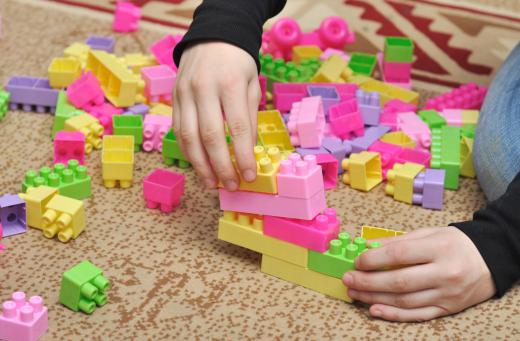The toy industry is a term that is currently used to refer to the large industry involved in making playthings for children. Formerly, the term toy was used to refer to small items like buttons and hooks, and thus the toy industry was the industry that produced these items. As this use is currently outdated, most references to the toy industry in modern contexts relate to children's playthings. Like other industries, there are many facets to the industry that makes toys, including design, production, and marketing. Within this industry, there are even awards and journals celebrating the craft and business of toy making.
Which objects qualify as toys depends on the time period, but any object designed to be played with by a child might be considered a toy. Small wooden objects and complex computerized games might both be considered products of the toy industry. Video games and certain more advanced computerized items might not be considered products of this industry, particularly if they are aimed at teen audiences or adults.

The design of toys is complex and often involves significant research and testing. Manufacturing these items is often even more complex, as various safety and material considerations must be observed. Selling toys is also a part of the toy industry, and this involves advertising and research into what constitutes a fair price. Keeping people interested in toys through toy stores and online is not generally very difficult, as children are often eager consumers, but marketing must appeal to both children and parents. The toy industry is not a simple matter of making and selling toys but an entire web of complex processes.

There are other features of the toy industry beyond the business aspects. Within this industry, there are magazines that provide information about current events and future products. It is common for toy makers to attend conventions in order to share knowledge and demonstrate products to potential buyers. Sometimes, there are even awards for the best toys in certain genres.

As technology becomes more and more available, it is likely that the toy industry will be steered toward more and more complex products. Certain simple products seem to remain popular in niche markets and therefore still have a place in the industry. Soft toys, blocks, and other historical toys continue to be manufactured and considered a part of this industry even in the face of complex electronic toys. With more and more technology available at cheaper prices, the look of this industry will likely continue to change drastically in the future.
